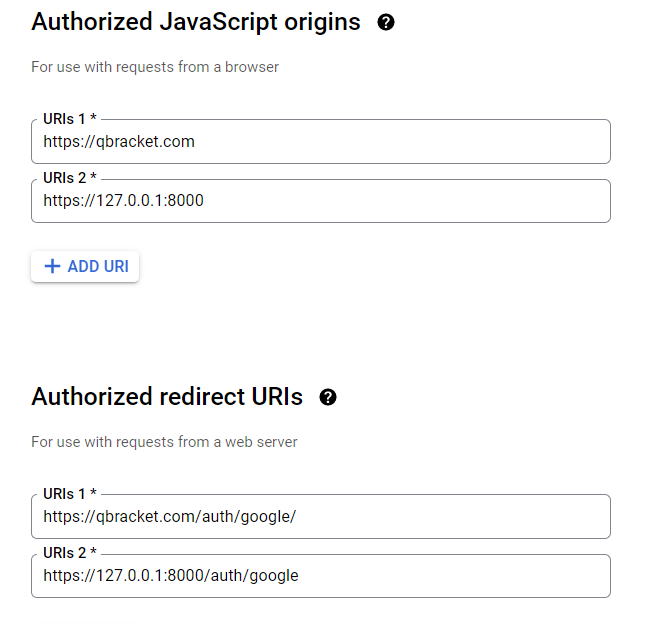This is driving me absolutely crazy and preventing me from being able to do local dev/test.
I have a flask app that uses authlib (client capabilities only). When a user hits my home page, my flask backend redirects them to /login which in turn redirects to Google Auth. Google Auth then posts them back to my app's /auth endpoint.
For months, I have been experiencing ad-hoc issues with authlib.integrations.base_client.errors.MismatchingStateError: mismatching_state: CSRF Warning! State not equal in request and response. It feels like a cookie problem and most of the time, I just open a new browser window or incognito or try to clear cache and eventually, it sort of works.
However, I am now running the exact same application inside of a docker container and at one stage this was working. I have no idea what I have changed but whenever I browse to localhost/ or 127.0.0.1/ and go through the auth process (clearing cookies each time to ensure i'm not auto-logged in), I am constantly redirected back to localhost/auth?state=blah blah blah and I experience this issue: authlib.integrations.base_client.errors.MismatchingStateError: mismatching_state: CSRF Warning! State not equal in request and response.
I think the relevant part of my code is:
@app.route("/", defaults={"path": ""})
@app.route("/<path:path>")
def catch_all(path: str) -> Union[flask.Response, werkzeug.Response]:
if flask.session.get("user"):
return app.send_static_file("index.html")
return flask.redirect("/login")
@app.route("/auth")
def auth() -> Union[Tuple[str, int], werkzeug.Response]:
token = oauth.google.authorize_access_token()
user = oauth.google.parse_id_token(token)
flask.session["user"] = user
return flask.redirect("/")
@app.route("/login")
def login() -> werkzeug.Response:
return oauth.google.authorize_redirect(flask.url_for("auth", _external=True))
I would hugely appreciate any help.
When I run locally, I start with:
export FLASK_APP=foo && flask run
When I run inside docker container, i start with:
.venv/bin/gunicorn -b :8080 --workers 16 foo


